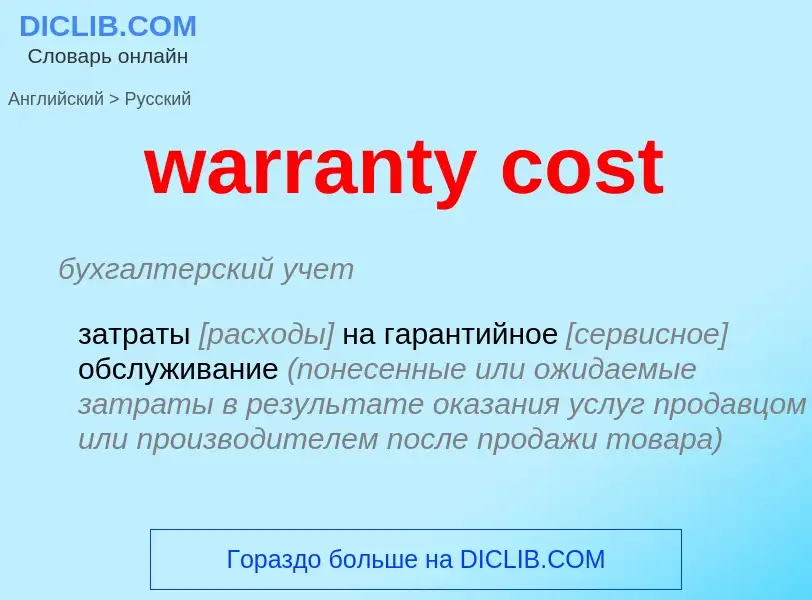Μετάφραση και ανάλυση λέξεων από την τεχνητή νοημοσύνη ChatGPT
Σε αυτήν τη σελίδα μπορείτε να λάβετε μια λεπτομερή ανάλυση μιας λέξης ή μιας φράσης, η οποία δημιουργήθηκε χρησιμοποιώντας το ChatGPT, την καλύτερη τεχνολογία τεχνητής νοημοσύνης μέχρι σήμερα:
- πώς χρησιμοποιείται η λέξη
- συχνότητα χρήσης
- χρησιμοποιείται πιο συχνά στον προφορικό ή γραπτό λόγο
- επιλογές μετάφρασης λέξεων
- παραδείγματα χρήσης (πολλές φράσεις με μετάφραση)
- ετυμολογία
warranty cost - translation to ρωσικά
бухгалтерский учет
затраты [расходы] на гарантийное [сервисное] обслуживание (понесенные или ожидаемые затраты в результате оказания услуг продавцом или производителем после продажи товара)
нефтегазовая промышленность
нарушение гарантийных обязательств
Ορισμός
Βικιπαίδεια
In contract law, a warranty is a contractual assurance given by a seller to a buyer, for example confirming that the seller is the owner of the property being sold. A warranty is a term of a contract, but not usually a condition of the contract or an innominate term, meaning that it is a term "not going to the root of the contract", and therefore only entitles the innocent party to damages if it is breached, i.e. if the warranty is not true or the defaulting party does not perform the contract in accordance with the terms of the warranty. A warranty is not a guarantee: it is a mere promise. It may be enforced if it is breached by an award for the legal remedy of damages.
Depending on the terms of the contract, a product warranty may cover a product such that a manufacturer provides a warranty to a consumer with whom the manufacturer has no direct contractual relationship because it is purchased via an intermediary.
A warranty may be express or implied. An express warranty is expressly stated (typically, written); whether or not a term will be implied into a contract depends on the particular contract law of the country in question. Warranties may also state that a particular fact is true at a point in time, or that the fact will continue into the future (a "continuing warranty").

